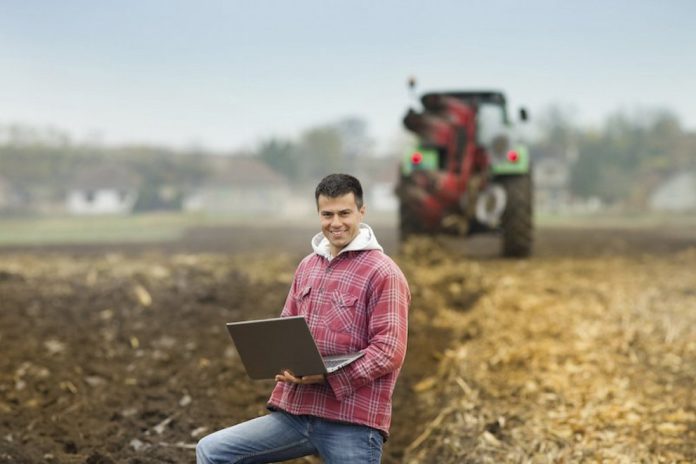In this article, Max Mitchell takes a look at the benefits of learning in a real-world environment for farm education.
Farming is the best choice for your future profession if you want to make helping people your life’s work and also love animals.
However, the seeming romance of working in the countryside comes with many challenges for young specialists.
For example, the daily physical work, accounting, marketing, planning from dawn to dusk, and solving many other issues, without which the farm cannot function properly.
That is why agriculture students need practical training in a real-world environment. Thus, the benefits of such practical training became the main topic of this article.
Farm Experience: What Students Will Get
Farming is one of many fields where practice in an authentic learning environment is an essential element of a meaningful education in this field.
And here is a good time for students to answer the critical question: “Why do I want to do this?”
In natural farm conditions, some will be convinced of the right path, and some may be disappointed and realise that this work is not for them.
Below we discuss other benefits of learning in a real-world environment for young farmers.
However, if the suggested list is not enough for you, you can always use the Top Writing Reviews website, where a qualified author provides you with all the necessary information.
# 1 Decide on a Specific Industry
Do not spread yourself over all kinds of agricultural activities. It only takes up your energy, and future working activities will not bring the desired income. So as long as there is an opportunity, you should choose one thing to which your heart goes: growing flowers or vegetables, poultry or livestock.
Only in the conditions of a real farm will you be able to assess your strengths and capabilities adequately.
# 2 Prepare a Business Plan
Agree that starting your future farming activities with a clear strategy prepared in advance is much better. After all, in the future, you will have to calculate the upcoming costs, planned profits, and possible risks.
You can draw up a business plan, ask for help from experienced colleagues or download a ready-made model project from the Internet and adapt it to your needs.
Remember that you have a unique opportunity to see how professional farmers work during practice.
So the best option is, of course, to ask them for help. So use this opportunity, so you do not regret not taking advantage of it when you have the time.
# 3 Learn About Storage and Transportation
Yes, it is not always up to the farmer to deliver the goods.
Nevertheless, you may have to face situations in the future where you have to return goods yourself.
Thus, it is worth taking the time at an early stage of your profession to study means of transport that will ensure the safe delivery of goods to the customer without the risk of damage or contamination.
Suppose you want to strengthen your practical knowledge on the farm with an excellent theoretical basis.
In that case, it is better to use the website Rated By Students, where experienced professionals give you all the necessary information.
# 4 Gain Knowledge of Animal Treatment
The farmers must be able to quickly and competently to identify and detect the presence of ill-health in an animal.
In addition, a good specialist is required to become familiar with the basic rules concerning newborn calves, the timing of animal coverage, and reproduction issues.
All this knowledge students can get during the practical training on the farm.
# 5 Know How to Assess the Agricultural Market
If students want to be successful in farming, they must also be able to assess the agricultural market to understand who will buy their products.
They should also study how many buyers in a particular region are willing to cooperate.
The cost of production is also an important consideration. On the farm, students can see this part of the work done by professional farmers to use this essential knowledge in the future.
# 6 Choose the Right Farm Site
The practice on the farm provides students with necessary information regarding soil type, topographic characteristics, and climatic conditions that they should have before they begin work.
Also, consider that the site’s location directly impacts the business plan, daily activities, and tasks list.
For example, if you raise cattle, you need to require ground suitable for this enterprise.
All this knowledge is vital for agriculture students.
What will you be able to do after the farm practice
For a successful farm practice, students need good theoretical knowledge and a desire to learn the profession of a farmer, as well as individual qualities such as emotional stability and analytical and organizational abilities.
Together, this will allow you to master the necessary practical skills presented below.
✔️ Perform activities to preserve farm animals, soil fertility, and the environment;
✔️ Choose optimal solutions when planning work, including in non-standard situations;
✔️ Control the quality of products;
✔️ Manage team, determine a rational type of activity, organize work on effective operation and maintenance of land, animals, and agricultural machinery;
✔️ Apply progressive technologies in the process of agricultural production;
✔️ Determine in operation the condition of land, animals, agricultural equipment, and the needs of the farm in terms of machinery, equipment, animals, and seeds.
Summing Up
Farming is not so much of a job as it is a calling. Being a farmer is not easy. It is a profession that requires high stamina and a love of animals and plants.
So learning in a real-world environment for farm education will help you see if you can handle this kind of work.
If the farm practice goes well, you can do what you love and involve your family or collaborate with other farmers.
But the best part is enjoying the results of your labours, seeing ripe fruit, growing crop, or a newly born calf.





